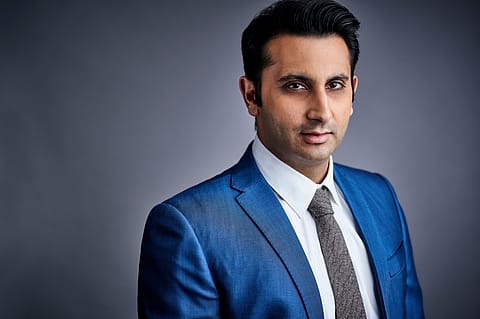Covid-19 vaccine possible by Q2 of 2022: Adar Poonawalla
With Indian authorities expediting approvals, a viable Coronavirus vaccine may be commercially available earlier than anticipated.

India may get a viable Covid-19 vaccine by the second quarter of 2022, ahead of the original estimated timeline of late 2022, says Adar Poonawalla, chief executive officer of Serum Institute of India (SII), the world’s largest manufacturer of vaccines by number of does produced.
Speaking to Fortune India, Poonawalla stated that his company was working on two vaccine candidates, which are currently undergoing animal testing. “We are hoping that by the end of this year—around September-October—we should be able to go for human trials in India. And maybe in another six months from there we can look at [a] vaccine, if the vaccine shows that it is protective and elicits a good immune response,” Poonawalla said.
While SII had earlier predicted a Coronavirus vaccine to be commercially available around late 2022, it should be in the market by the second quarter of 2022 given the “positive feedback” received from regulators who are expediting approvals in a bid to developing a vaccine for the disease at the earliest.
At last count, Covid-19 had afflicted over 1.3 million people globally and claimed 70,000 lives. In India, the number of Coronavirus positive cases has topped 4,400 and has resulted in 114 deaths.
The economic impact of the global pandemic has also been massive. India has been in a state of lockdown since March 25, with business operations across sectors coming to a virtual halt. The 21-day lockdown is supposed to end on April 14, but there is speculation on whether it will be extended (at least in some districts that have emerged as hotspots) beyond that date. The worst hit have been the poor—migrant labourers and daily wage earners—who are struggling to make ends meet in the absence of any work.
SII is collaborating with Codagenix, an American biotechnology firm, for the development of these vaccine candidates and the cost of the project is pegged at ₹300 crore.
Other Indian companies like Zydus Cadila are also working on bringing out a Covid-19 vaccine, in addition to various similar efforts by pharma majors around the world.
Recommended Stories
On March 13, the Indian Council of Medical Research (ICMR) had said that India had become the fifth country in the world to successfully isolate the virus strain, which was the first step towards expediting the formulation of a vaccine to prevent the spread of Covid-19. At that time, the ICMR had stated that India wasn’t in a position to be part of a global initiative by the World Health Organization (WHO) to develop a vaccine. This was because India didn’t have a critical mass of Coronavirus cases and deaths to contribute with, unlike other countries where the spread of the virus has been more severe like the U.S., the U.K., Spain, Italy, and Iran.
Poonawalla pointed out that the efficacy of a vaccine has to be tested by administering it to a sizeable section of a population that has been heavily infected, which was only possible in countries with a high infection rate. “But there are other ways of proving if a vaccine works. We have some ideas on how to design such a vaccine trial and will speak to the authorities about it at the appropriate time, once the results of our animal trials come in,” he said.
However, as the number of cases in India has risen rapidly since, the country has decided to join WHO’s global vaccine trials along with other nations including Spain, Thailand, Argentina, Iran, Norway, Switzerland, and South Africa.